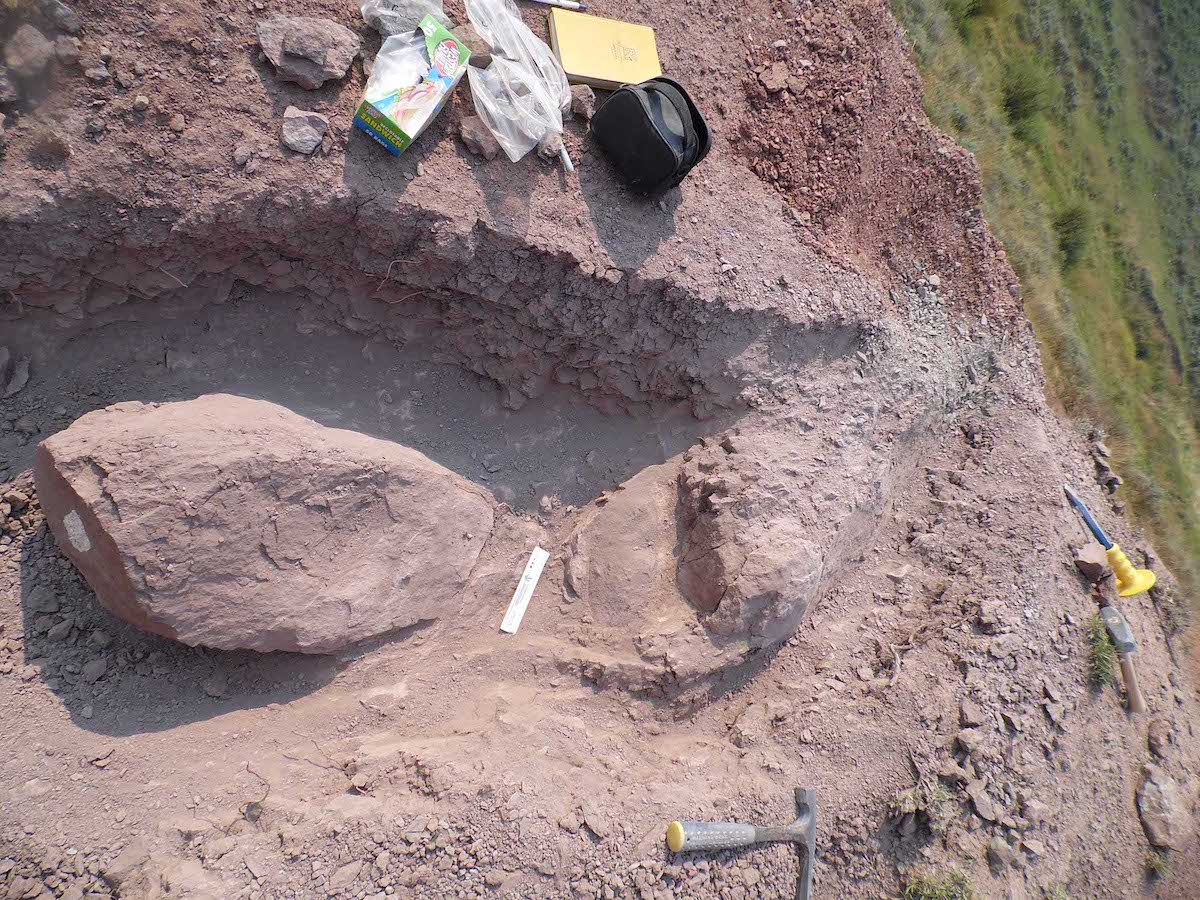Idaho State University researcher discovers first Idaho dinosaur burrow
October 23, 2019

POCATELLO –Idaho State University Department of Geosciences affiliate researcher L.J. Krumenacker has discovered and documented the first dinosaur burrow in Idaho, which is just the second dinosaur burrow discovered in North America and the third discovered in the world. Both North American burrows are from the dinosaur Oryctodromeus, Idaho’s most common dinosaur.
“I think this is pretty awesome,” Krumenacker said. “It is an incredible animal and it shows the potential for future discoveries in Idaho. A lot of where I’ve been looking has never been looked at before and I expect there is a lot of Idaho dinosaur discoveries left to find.”
The creature he discovered in the Caribou Range in the vicinity of Soda Springs is known as Oryctodromeus, a dinosaur about the size of a modern Great Dane, that was probably about 2-1/2 feet high at the hips and 11 feet long, including a 7-foot long tail. This dinosaur ate plants and the fossils are about 98 million years old.
 Krumenacker was helping to teach a field course for future paleontologists that was offered by Montana State University. While the main professor, his advisor, was lecturing the class, Krumenacker said he was “poking around” and found some bones at the site where the lecture was taking place. Later, he went back to the site and found more bones and hoped to find a burrow. After excavating a skeleton he found a big rock tube behind the skeleton. He excavated the tube and realized it was a burrow and that the skeleton was found just at the lowest end of the burrow.
Krumenacker was helping to teach a field course for future paleontologists that was offered by Montana State University. While the main professor, his advisor, was lecturing the class, Krumenacker said he was “poking around” and found some bones at the site where the lecture was taking place. Later, he went back to the site and found more bones and hoped to find a burrow. After excavating a skeleton he found a big rock tube behind the skeleton. He excavated the tube and realized it was a burrow and that the skeleton was found just at the lowest end of the burrow.
Although the dinosaur that he found was the only one in the burrow, he said that this species raised their offspring in the burrows.
“We know this because other specimens have been found where adult and young Oryctodromeus are in the same burrow,” Krumenacker said. “Burrows were a good place to raise kids and a safe place to go to not get eaten by other dinosaurs. At this time Idaho was hot and very wet, so it was also a good place to get out of the weather.”
Krumenacker is the principal author on the paper “Taphonomy of and new burrows from Oryctodromeus cubicularis, a burrowing neornithischian dinosaur, from the mid-Cretaceous (Albian-Cenomanian) of Idaho and Montana, U.S.A.” that was published in September in the Journal of Palaeogeography, Palaeoclimatology, Palaeoecology.
The paper had four co-authors, including David Varricchio from Montana State University who discovered the first described Oryctodromeus skeletons and burrows in Montana, and Tony Martin, who discovered Oryctodromeus-like dinosaur burrows in Australia. Other authors were Ashley Ferguson from ISU and John Wilson from Montana State University.
Among other topics, the paper showed evidence that these burrowing dinosaurs raised their young, that adults lived together in family units in burrows and that these dinosaurs may have lived in colonies similar to modern burrowing animals like ground-hogs.
Bottom photo information: L.J. Krumenacker
Categories:
